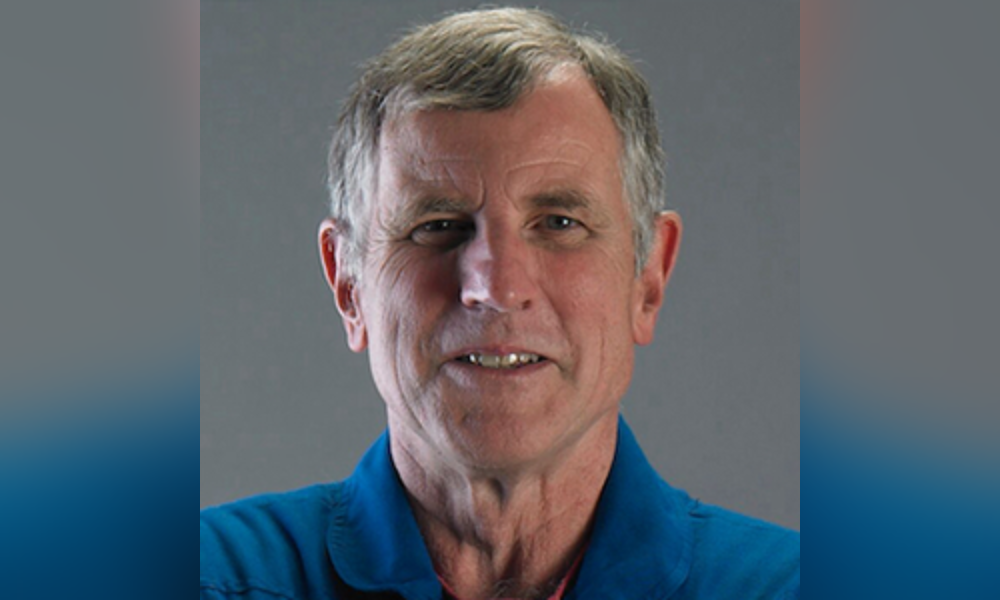'At NASA, we've learned to value the cultural background of our teams, and diversity of opinions'

If there’s one thing astronaut David Williams has learned from his time in space, it’s that leaders are only as strong as their teams.
As a specialist on two Space Shuttle missions, and the only Canadian to perform three spacewalks, Williams is no stranger to intense situations. He believes that whether you’re on a mission to space or trying to upskill your management teams, leaders need to remain emotionally stable – even if they’re having a bad day.
“Not everyone wakes up every day in a good mood,” he says. “As a leader in these situations, you need to tap into a mental framework to be able to do your best. One of the really exciting parts of being in a Space Shuttle crew is understanding how to pull on each other’s strengths and work as a unit. When everyone is bringing their best, that positivity is infectious.”
And if anyone understands the pressures of leadership, it’s Williams, who will be speaking at the upcoming HR Leaders Summit.
Not only is he a physician, an author, and a CEO, in 1998, he became the first non-American to hold a senior management position at NASA when he became director of the Space and Life Sciences Directorate. Since then, Williams has drawn on myriad of skills to help management understand what a true leader looks like.
Defining leadership
“My definition of leadership is the ability to influence others, hopefully in a positive direction,” he says. “There are many different attributes to leadership, many different leadership styles. It’s important that you develop a repertoire of these different techniques.
“Remember, being a commanding leader and telling people what to do just doesn't resonate these days. There are roles for directive leaderships in emergency situations, but developing visionary leadership skills, coaching and mentoring leadership skills, are all critical to success.”
In Canada, there’s something of a leadership crisis unfurling. O.C Tanner’s recent global culture report found that managers are at an increasingly higher risk of burning out. According to the data, leaders are 43 per cent more likely to say work is interfering with their ability to be happy in other areas of their lives. What’s more, while 79 per cent of leaders think they have a "good sense" of what their employees want, only 48 per cent of employees agree.
This disconnect is causing tension, stress, and ultimately turnover – leaving leaders overworked and feeling underappreciated.
Read more: HR Leaders Summit: ‘Nobody wanted to come back to the office’
In the face of such data, Williams believes it’s time to focus on some good old-fashioned self-care – something NASA prides itself on. In the space program, they focused on the concept of wellness in leadership, ensuring they’re able to take care of themselves and each other.
“We need to know that you're sleeping well, you're eating well, you're physically fit, and you're emotionally ready to go to space,” says Williams. “This reliance on each other is absolutely critical to succeeding in a team environment. The whole approach emphasizes the importance of positive emotional energy.”
“At NASA, we've learned to value the cultural background of our teams, but more importantly to value diversity of opinions. We learn from disagreement to be able to bring our best to a situation. So I would say, as a CEO, I encourage my senior team to be forthright and candid in their comments. We’re going to be stronger as an organization if we can discuss different perspectives and then come to the best possible consensus.”
Read more: HR Leaders Summit: Why it makes sense to focus on attributes over experience
For Williams, his time in space taught him to always expect the unexpected. No matter how many times you’ve been to space, or how prepared you think you are as a leader, there’s always room for growth and change. Real leaders don’t dictate what their people should do, they learn alongside them – that’s the key to not only surviving, but thriving.
“It’s a thrilling but daunting experience — riding seven-and-a-half million pounds of thrust, traveling 25 times the speed of sound,” he says. “And while it’s incredible, it can be a challenge dealing with both the expected and unexpected parts of the mission. When you're part of a crew, you need to perfect your own abilities in order to bring out the best in your team.”
Williams will be speaking at our upcoming HR Leaders Summit – don’t forget to book your ticket here.




